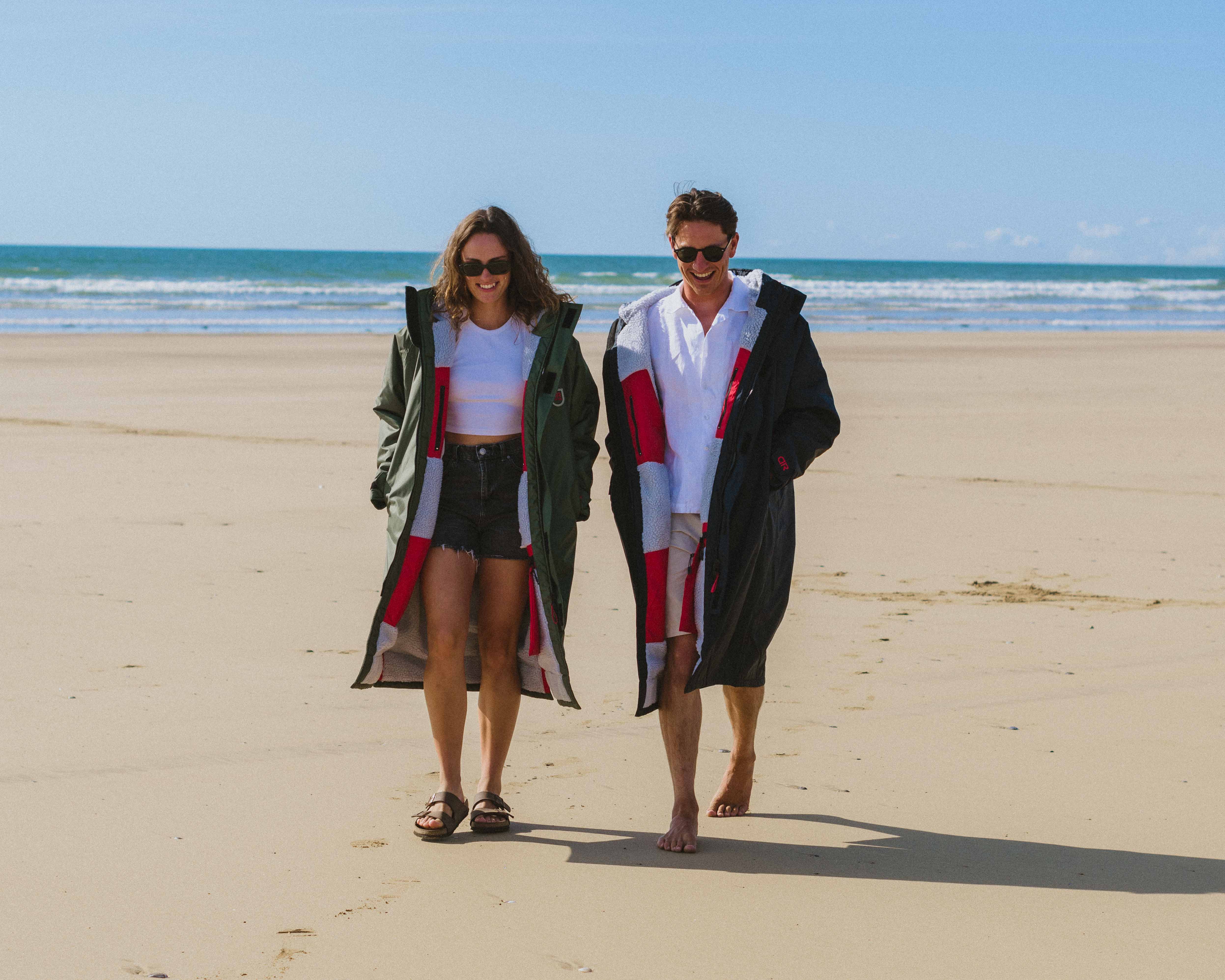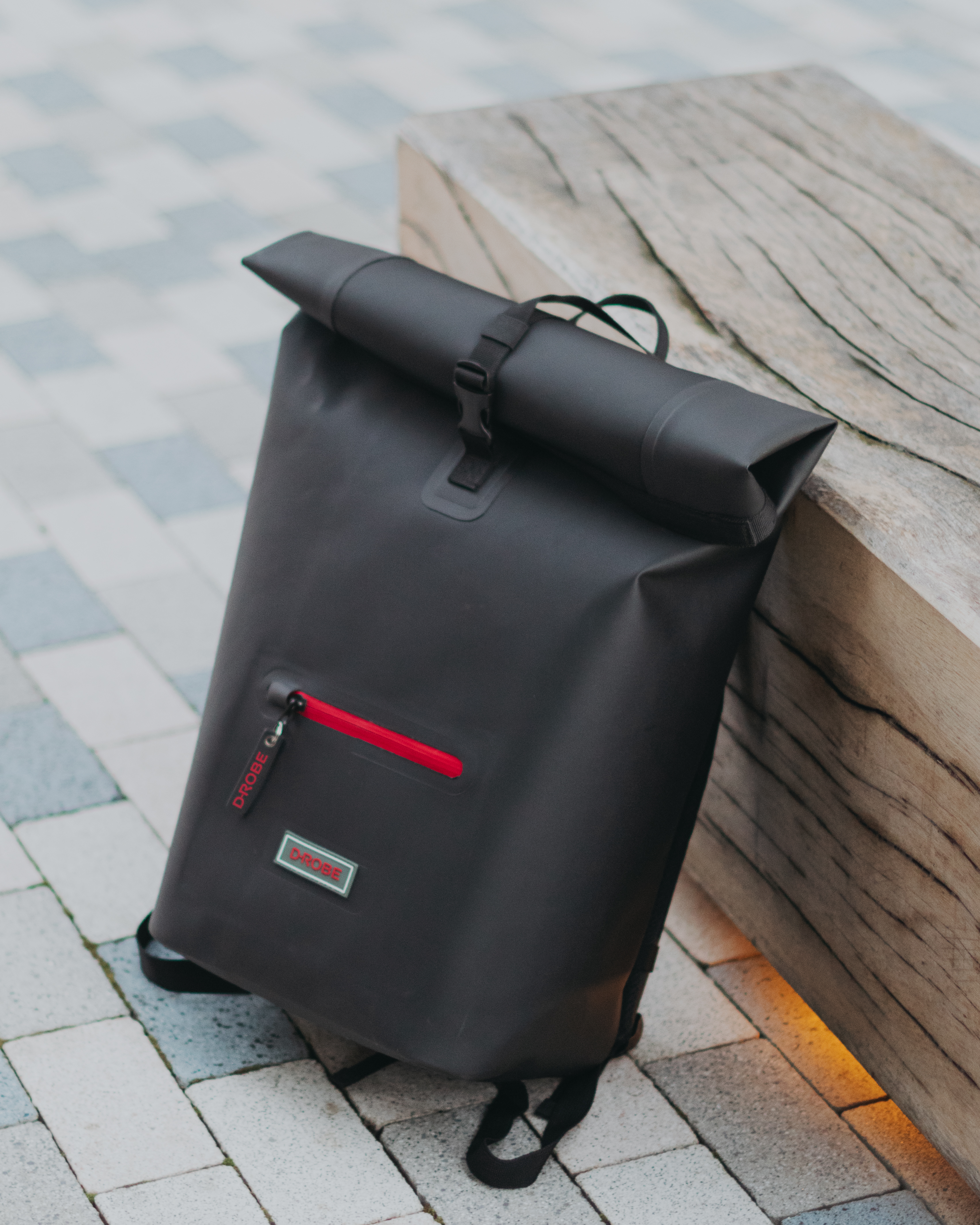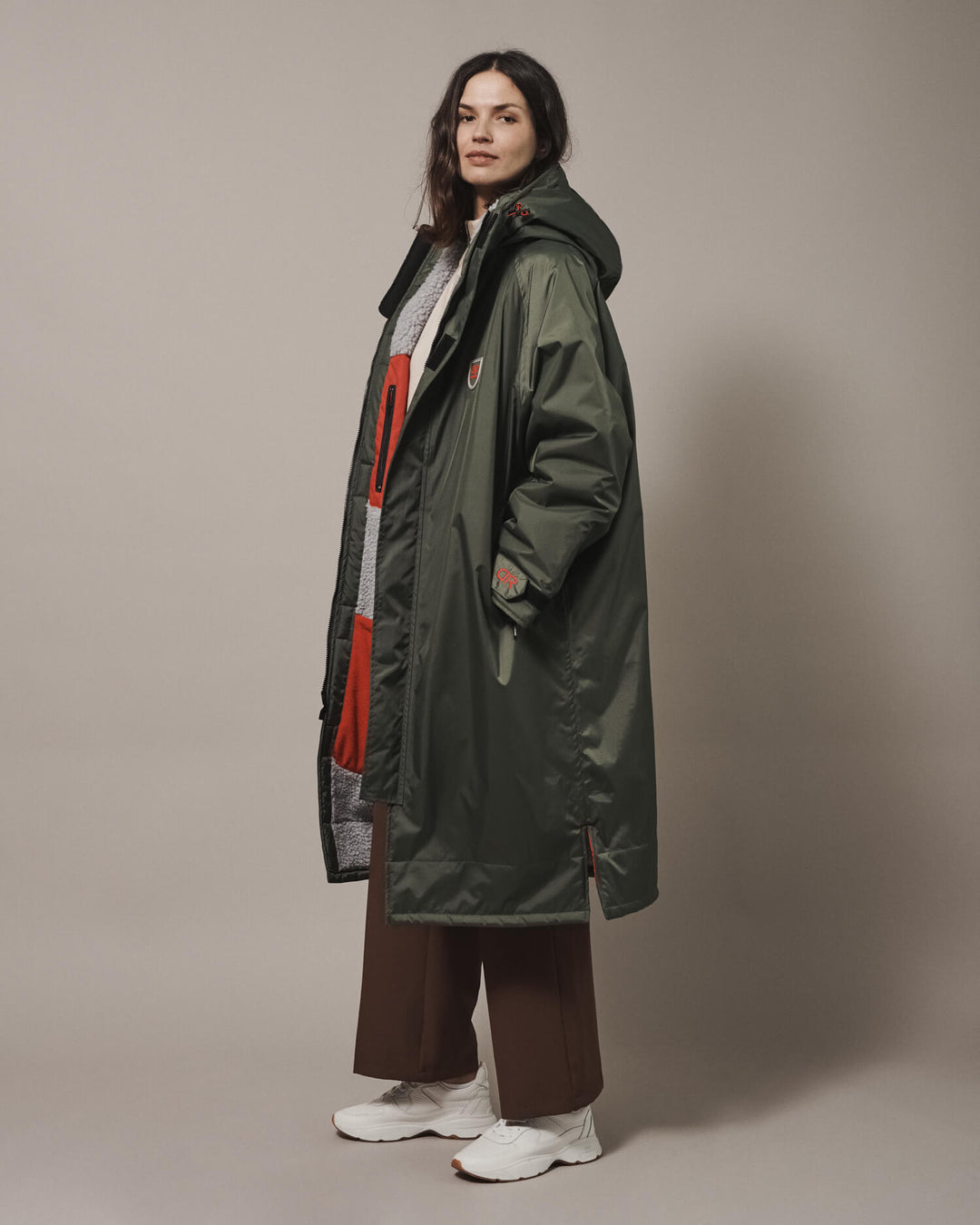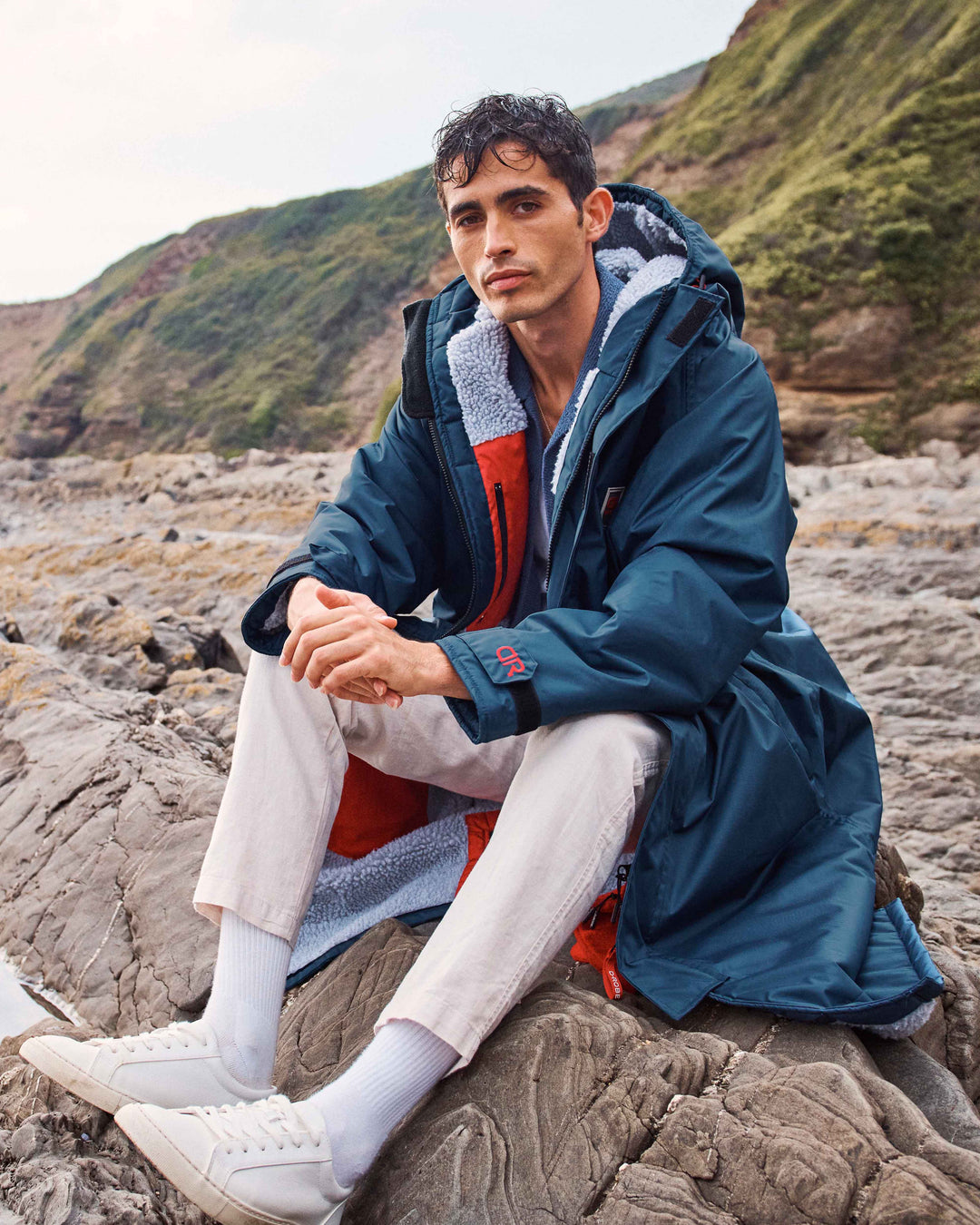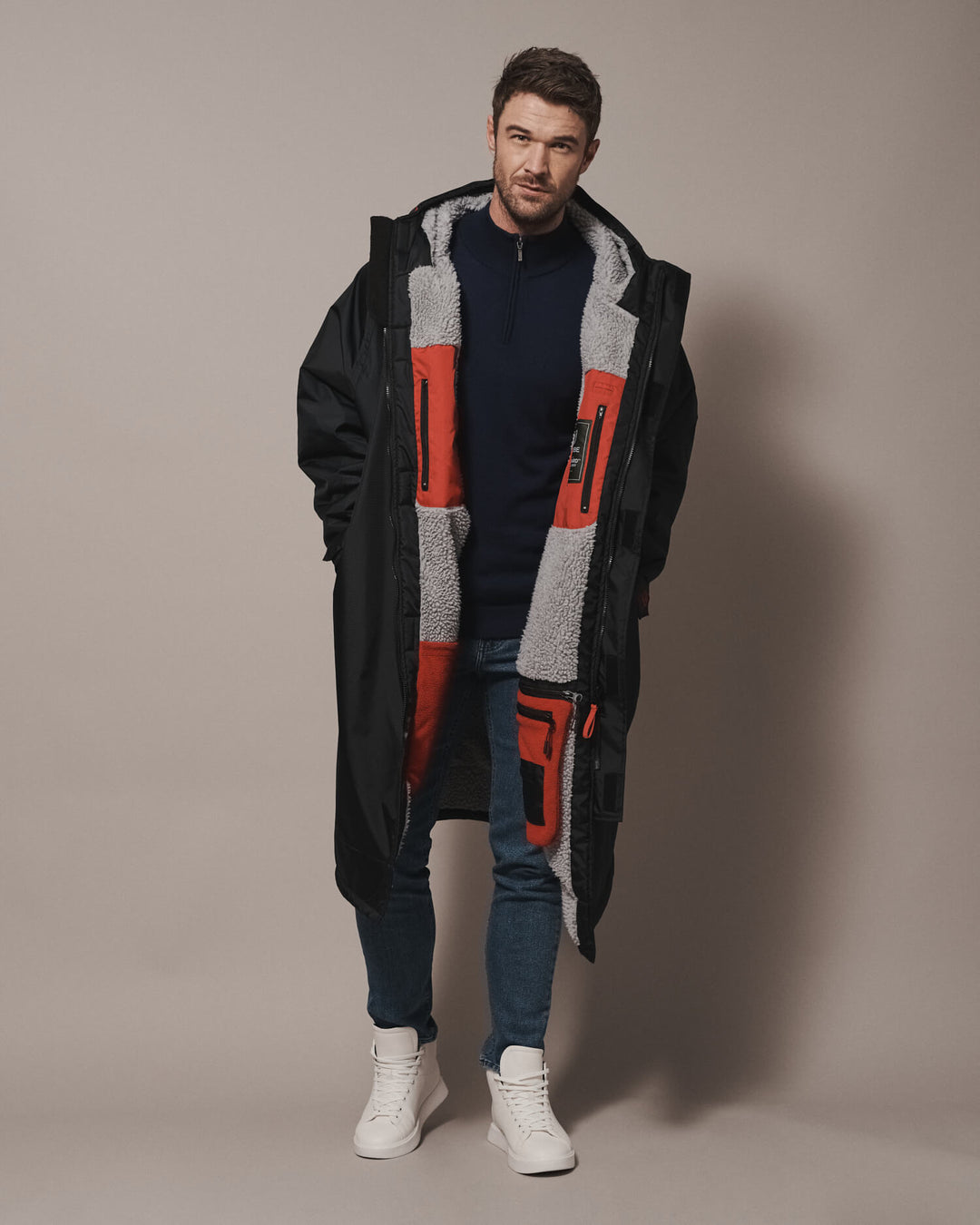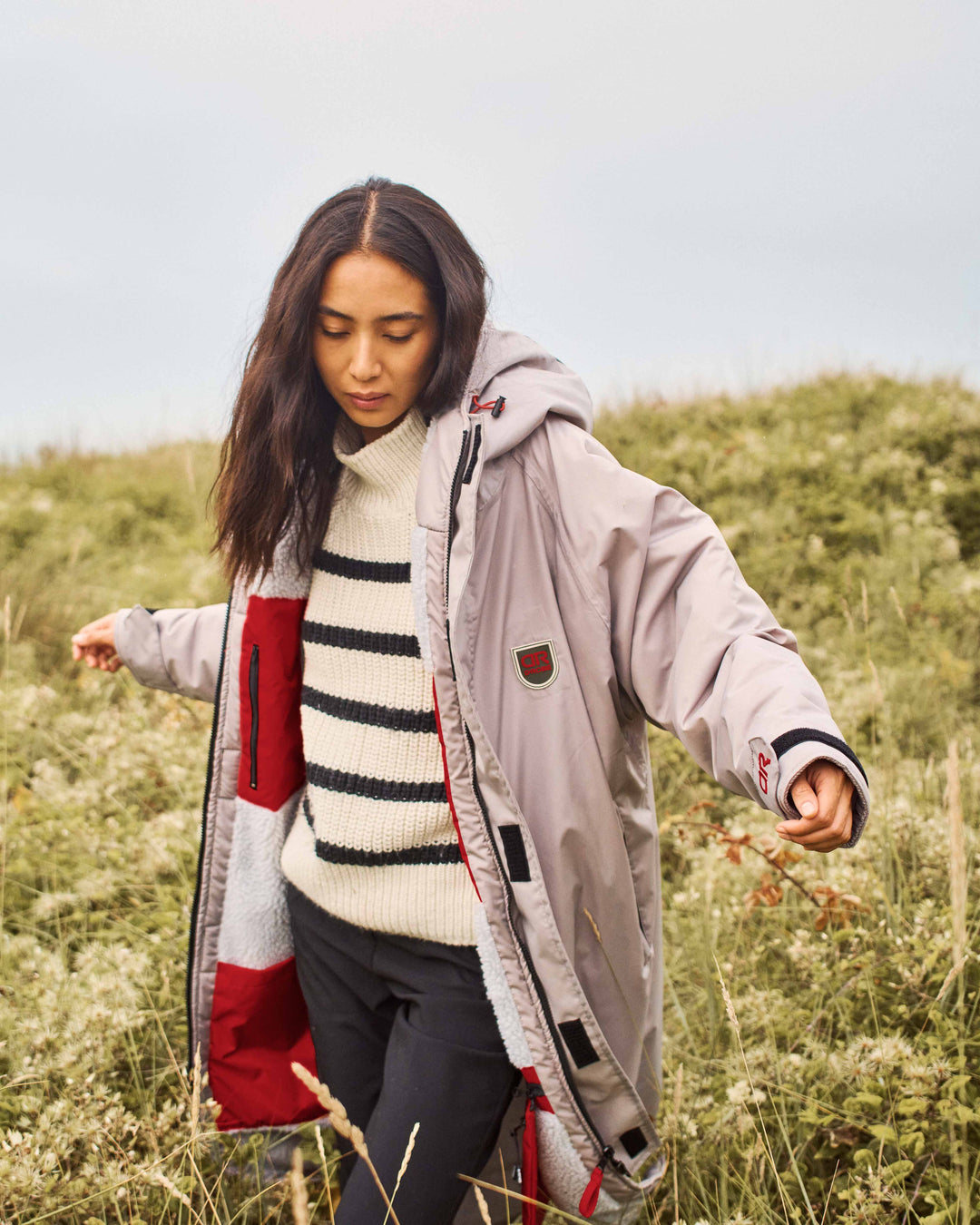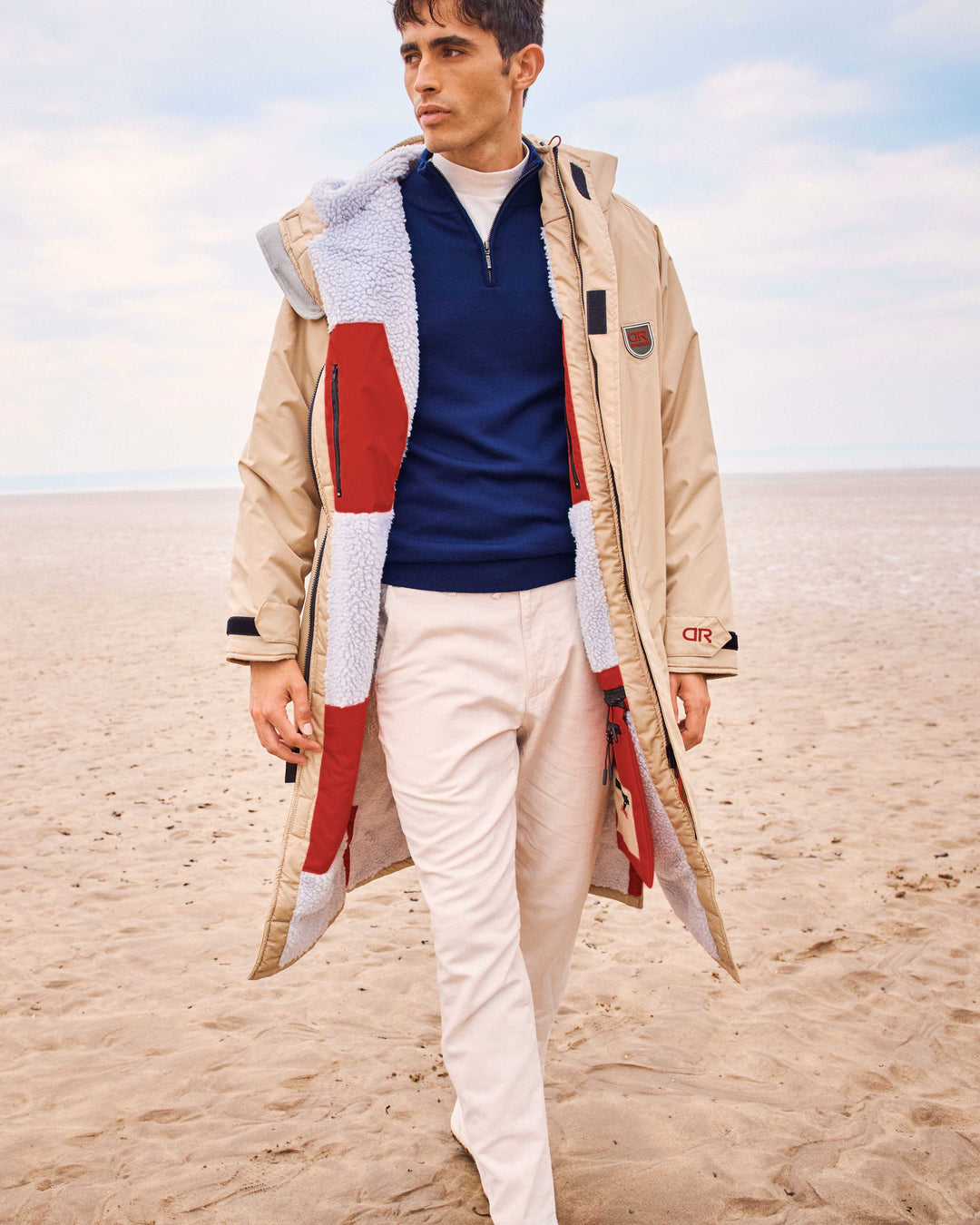Notes on Our Sustainable Journey ...
Why D-Robe?
D-Robe was born out of the need for a robe that transcends the limitations of a mere "changing robe". We wanted something more than a warm jacket, with the elegance of a trench coat's length, and the timeless appeal of a parka. A utility piece of clothing put together to brave the elements of nature, an item of clothing that would convert to a wardrobe staple, affordable and accessible.
We are ONE!
Our commitment to protecting you from the elements is mirrored by our dedication to preserving nature. Our passion for the outdoors is intertwined with our desire to connect with nature, embracing its elements and savouring the freedom to explore the wilderness. We cherish the wildlife and marvel at the splendour of everything we encounter in nature. However, we recognise with regret that we ourselves have become a threat to our precious natural resources. As a brand, we are deeply committed to comprehending and improving our impact on the environment.

Our Journey
We firmly believe in the importance of mindful fashion choices and maximising the utility of the clothing we own. To achieve this, we have designed the Beaufort Robe that is multi-functional, ageless, and cosy but also effortlessly stylish. We wanted our discerning consumers to gravitate towards this versatile piece throughout various seasons thus making it a wardrobe staple.
Our Capsule Wardrobe
Recycled materials reduce the need to grow, harvest or extract new materials from the earth and require much less energy, water and fossil fuels to produce. The D-Robe collective is predominantly made of recycled fabrics.
The Beaufort Robe

Our flagship product, The Beaufort Robe is made from recycled materials with GRS certification*. The breathable outer shell of our Robe is made from 100% recycled nylon produced mainly from ghost fish nets, which is a fantastic solution to diverting rubbish from the ocean. It can also come from nylon carpets and tights. Though it is more expensive than new nylon, the environmental advantages make it a worthwhile investment for us.
The cosy fleece lining of our Robe is made from 100% recycled polyester that is derived from plastic bottles. This is a great way to divert plastic from our landfills and waterways. It requires fewer resources than that new fibres and generates lesser CO2 emissions
The Roll-top Rucksack

Our bags are crafted using eco-friendly TPU, boasting a seamless blend of elegance and functionality while prioritising environmental consciousness. The material is non-toxic and can be recycled, contributing to the reduction of its ecological impact.
Not only does this exceptional material offer sleek aesthetics, but it also exhibits remarkable water resistance. It remains flexible even in extremely low temperatures and withstands high temperatures without cracking or peeling, showcasing its durability and heavy-duty nature. This makes it the perfect choice for a versatile rucksack, catering to the needs of those constantly on the go.
Merino Wool Knitwear

Merino wool, produced by the majestic Merino Sheep inhabiting the highlands of New Zealand and Australia, is a renewable fibre that can be harvested twice a year. This exceptional wool surpasses other types in fineness, measuring well below the human itching threshold of 25 microns, resulting in a luxuriously soft texture while maintaining remarkable strength.
Its versatility makes it an ideal fabric for a capsule wardrobe, as it adapts effortlessly to withstand temperatures ranging from -20 to +35 degrees Celsius. Merino wool effortlessly combines style, comfort, and performance in perfect harmony. Moreover, it has the remarkable ability to return to nature at the end of its life, being both biodegradable and compostable.
Let’s recap!
It's important to understand that the term "recycled" doesn't automatically imply "sustainable." To genuinely reduce landfill, we must focus on maximising the longevity of our products. This responsibility lies at the heart of our approach when designing garments and accessories for D-Robe.
Rather than questioning the purpose of our work, we strive to discover its need. When we achieve that perfect intersection where our creativity meets the world's needs, we will have reached our utopia.
